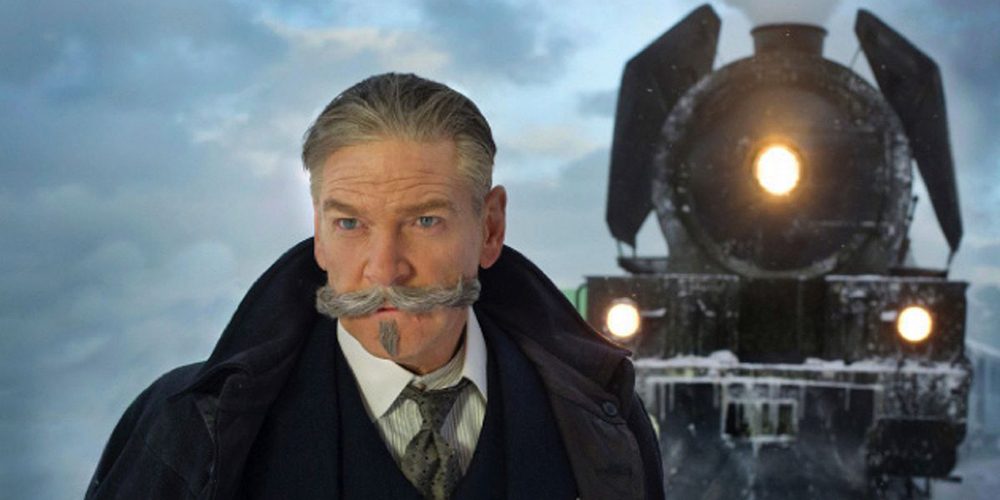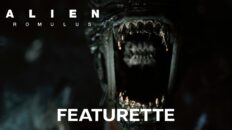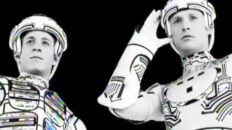Murder on the Orient Express (Branagh 2017) is a movie that benefits tremendously from lowered expectations. It certainly doesn’t help that the Agatha Christie novel has been adapted at least several times before—twice well (the 1974 Lumet adaptation and the 2010 Suchet version) and once forgettably (a 2001 television movie starring none other than Alfred Molina as Poirot)—to say nothing of the 2015 Japanese version or the 1955 West German television adaptation. It further doesn’t help that this adaptation attempts to capture the effect of both good adaptations—the glamor of the Lumet film and the moral seriousness of the Suchet version. It stumbles badly on both scores. The new version doesn’t know what it wants to be. This is perhaps most clearly seen in the treatment of Hercule Poirot, here played by Kenneth Branagh.
The image of Poirot is one that by now should be ingrained firmly in the popular mind, but this was not always the case; Agatha Christie railed against unfaithful versions of her creation (see: Tony Randall in The Alphabet Murders, 1965) and became convinced at one point that Poirot simply doesn’t translate to drama, resulting in a tendency to write the character out of her own stage adaptations. Of course, she needn’t have bothered; no adaptation is faithful, because a truly authentic cinematic rendering of any literary text would simply be a projection of that text on screen. This is, by the way, why worrying about whether a filmed version of a book is “faithful” is ultimately a fool’s errand—it never will be because it cannot. Though the publicity around the Lumet film suggested that here, at last, was Christie’s detective as he appeared in the novels, what it gives us is in fact the first draft of a new version of the character. What Lumet’s version of Murder on the Orient Express does—and this is no mean feat—is give life to a detective who is in most ways a collection of eccentricities. Albert Finney’s performance is a defining turn for the character, no less than William Gillette was for Sherlock Holmes. Finney provides an embodiment that enables the audience to believe that this character exists in something like the real world. Subsequent performances—Ustinov, Suchet, and (yes) Branagh—are indebted in various ways to this groundbreaking portrayal.
Until Branagh, these performances are gigantic—almost monstrous—almost godlike—and that is as it should be. Poirot is the definition of the Golden Age detective, in that he is a principle of order bringing closure the world around him. He is not human—there’s something uncanny about his glittering green eyes, about his tremendous fastidiousness, and particularly about his moustache. After seeing the Lumet Murder on the Orient Express, Agatha Christie reportedly commented that the only complaint she had about the movie was about Finney’s moustache. Why, she asked, should her detective not have the finest moustache in England, as described in the books? But Lumet, as a film director, understood more clearly than Christie that some things cannot be presented on screen. Finney’s mustache is finicky and precise, not grandiose. His performance fills in what the facial hair neglects: tremendous egotism coupled with a deep (sometimes very deep) compassion. Subsequent Poirot portrayals follow this tendency, and looking at the monstrosity on Branagh’s face, it is easy to see why. Agatha Christie’s description simply does not work on screen.
What all of the earlier portrayals of Poirot have in common—and this includes Suchet’s increasingly humanized performance in the long-running television show—is that they are not mere mortals. They are gods. Finney is a weird, alien creation who does not fit among ordinary humans; Ustinov is jovial in the truest sense, in that one can almost imagine that he is himself the great god Jupiter. Suchet’s Poirot is a masterwork of precise detail, certainly more lived-in than Finney and less Ustinov-y than Ustinov, but nevertheless openly artificial, openly a “type.” Branagh joins this company and attempts to make his own contribution. An initial sight of him would suggest that he is following the gargantuan performances of his predecessors. His mustache is closer to the description given and Agatha Christie’s novels and suggests that we, the audience, are about to witness a respected actor indulging in over-the-top theatrics. But his performance is (in spite of accusations or fears of scenery chewing) remarkably restrained and grounded. This Poirot is not some sort of cosmic principle of order; this Poirot is a man in his late middle age, a man with heartbreak in his past and with a curse—the curse being that he sees everything (this is a description of the detective’s ability that is directly related to the contemporary anxieties about intuition and intellectual work—see, for instance, Guy Ritchie and his Sherlock Holmes).
The moustache is larger but the character is smaller. Branagh’s Poirot would be a more pleasant person to spend time with than any of the previous ones. The warmth he has for his friends is less calculated and brittle than that portrayed by Suchet, and his interaction with the other people on the Orient Express more natural than that of Finney. He is certainly eccentric—his fanatical care for both his moustache and for impossible symmetry both get a nod—but what strikes one the most about this Poirot is how very normal he is. He likes to hang out in Turkish kitchens smelling the bread; he cracks jokes about prostitutes and street litter. He is no longer the Eccentric Detective but (as he himself says) a man of a certain age who knows what he likes and feels comfortable asking for it. And Branagh plays this role well—this is not a Poirot anyone who has seen other versions, much less read the books, will recognize; it is, truly, Kenneth Branagh’s Poirot, and he should be applauded for so boldly making the character his own. But by becoming more approachable and likable, his Poirot is infinitely diminished. This is no longer a god who walks among men; this is a man who occasionally thinks that he is a god. He is, thus, typical of the rest of the movie. These characters—so richly defined in the Lumet version—are pale creations indeed, who often get passing introduction and then vanish until the plot needs them again.
None of this is intended to discourage viewers from seeing this movie. I, personally, want it to be successful—if only because the teased (and now in production) sequel, a remake of Death on the Nile, strikes me as a much more plausible field for Branagh’s Poirot. The 1978 version is very weak (though, like the 1974 Lumet Express, it has an unbeatable cast) but the novel is steeped in a humanism that is absent from Murder on the Orient Express. I would love to see Branagh’s Poirot desperately attempt to talk Jacqueline De Bellefort away from the path she has chosen; his warmth would shine through (particularly since this new Orient Express gifts him with a lost love). But taken in terms of other Poirot adaptations, Murder on the Orient Express is inessential. Branagh’s Poirot brings something genuinely new to the character, but this new thing is a diminishment. The rest of the cast acquit themselves well with the material they are given, but they are not given much. The glamour of this movie is faded glamour; the ethical quandary of this movie is half-baked compared to the Suchet adaptation’s similar darkening of the source material. If we compare Poirot, once again, to Sherlock Holmes, the Branagh Orient Express is the character’s Crucifer of Blood—essential only for completists and people who want to see nontraditional but uninspiring takes on a classic detective.








